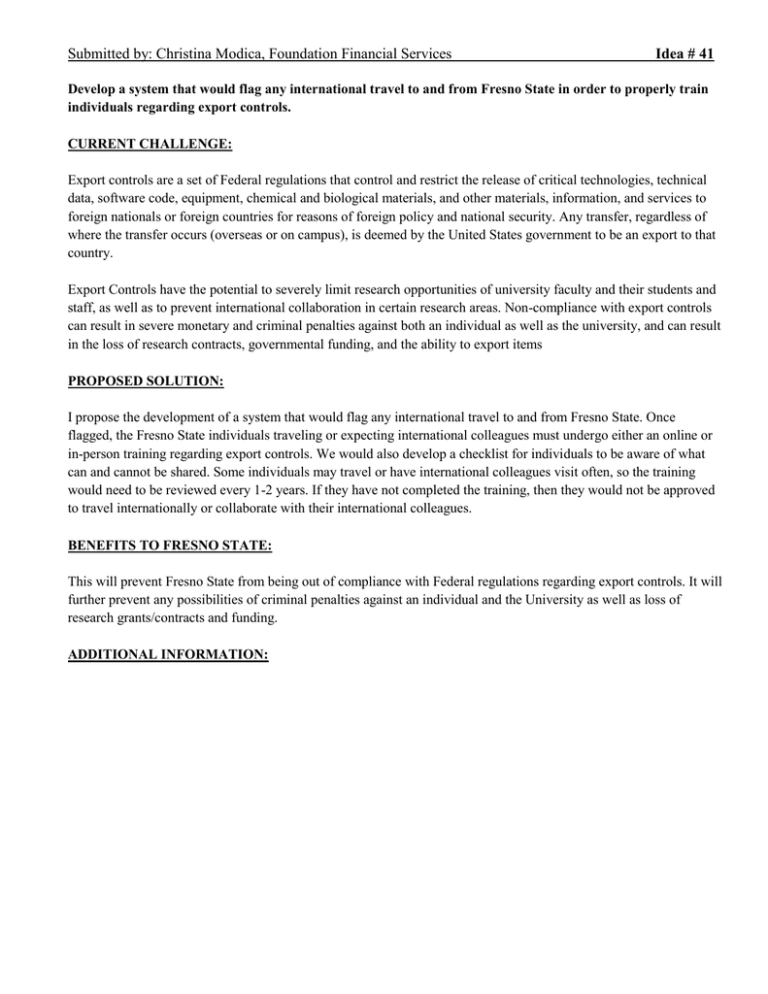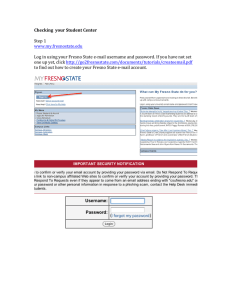Idea # 41
advertisement

Submitted by: Christina Modica, Foundation Financial Services Idea # 41 Develop a system that would flag any international travel to and from Fresno State in order to properly train individuals regarding export controls. CURRENT CHALLENGE: Export controls are a set of Federal regulations that control and restrict the release of critical technologies, technical data, software code, equipment, chemical and biological materials, and other materials, information, and services to foreign nationals or foreign countries for reasons of foreign policy and national security. Any transfer, regardless of where the transfer occurs (overseas or on campus), is deemed by the United States government to be an export to that country. Export Controls have the potential to severely limit research opportunities of university faculty and their students and staff, as well as to prevent international collaboration in certain research areas. Non-compliance with export controls can result in severe monetary and criminal penalties against both an individual as well as the university, and can result in the loss of research contracts, governmental funding, and the ability to export items PROPOSED SOLUTION: I propose the development of a system that would flag any international travel to and from Fresno State. Once flagged, the Fresno State individuals traveling or expecting international colleagues must undergo either an online or in-person training regarding export controls. We would also develop a checklist for individuals to be aware of what can and cannot be shared. Some individuals may travel or have international colleagues visit often, so the training would need to be reviewed every 1-2 years. If they have not completed the training, then they would not be approved to travel internationally or collaborate with their international colleagues. BENEFITS TO FRESNO STATE: This will prevent Fresno State from being out of compliance with Federal regulations regarding export controls. It will further prevent any possibilities of criminal penalties against an individual and the University as well as loss of research grants/contracts and funding. ADDITIONAL INFORMATION:


